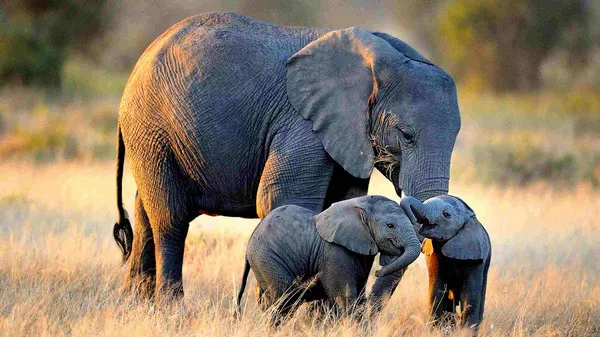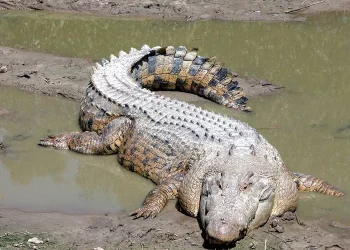When it comes to intelligence and cognitive abilities in the animal kingdom, brain size often plays a crucial role. The brain serves as the epicenter of an organism’s nervous system, governing various functions, including perception, learning, memory, and decision-making. But among the vast array of species that inhabit our planet, which animal boasts the largest brain? In this exploration, we delve into the intriguing world of neurology to uncover the answer to this captivating question.
The Intricacies of Brain Size
Before delving into the specific contenders for the title of the largest brain, it’s essential to understand the complexities surrounding brain size in the animal kingdom. While it’s tempting to correlate larger brains with higher intelligence, the reality is far more nuanced. Brain size alone does not dictate cognitive prowess; rather, it’s the relative size of the brain concerning body mass, also known as the encephalization quotient (EQ), that provides insights into an animal’s cognitive abilities.
In essence, EQ accounts for the fact that larger animals require larger brains to regulate their bodily functions. Therefore, comparing absolute brain sizes across species without considering body mass would be misleading. By calculating EQ, researchers can assess the extent to which an animal’s brain deviates from the expected size based on its body mass. This metric offers a more accurate representation of cognitive abilities across diverse taxa.
Cetaceans and Primates
Among the frontrunners in the quest for the largest brain are cetaceans, a group encompassing whales, dolphins, and porpoises, and primates, including humans, apes, and monkeys. Both cetaceans and primates have garnered significant attention from neuroscientists due to their remarkable cognitive abilities and social complexity.
Cetaceans, renowned for their intricate communication systems, navigational skills, and cooperative behaviors, boast impressive brain sizes relative to their body mass. Species like the sperm whale (Physeter macrocephalus) possess brains weighing up to 8 kilograms (18 pounds), comprising a substantial portion of their overall body weight. This remarkable brain size enables cetaceans to exhibit advanced social behaviors, intricate problem-solving abilities, and sophisticated echolocation techniques.
On the primate front, humans undoubtedly reign supreme in terms of brain size and cognitive capabilities. With an average brain size of around 1,400 cubic centimeters, the human brain is unparalleled in its complexity and adaptability. However, within the primate lineage, other species also exhibit notable brain sizes relative to their body mass. Great apes such as chimpanzees, bonobos, gorillas, and orangutans possess brains that, while smaller than humans’, display remarkable similarities in structure and function. These primates demonstrate advanced cognitive skills, including tool usage, social learning, and emotional intelligence, underscoring the importance of brain size in facilitating complex behaviors.
The Elephant’s Enigmatic Brain
While cetaceans and primates often steal the spotlight in discussions about brain size and cognitive abilities, another unlikely contender emerges—the elephant. As the largest land animals on Earth, elephants possess brains that rival those of cetaceans in sheer size and complexity.
The African elephant (Loxodonta africana) and the Asian elephant (Elephas maximus) exhibit brain sizes ranging from 4.5 to 5.5 kilograms (10 to 12 pounds), making them one of the largest-brained terrestrial mammals. What sets elephants apart is not just their brain size but also the intricate neural networks that underpin their remarkable cognitive abilities.
Elephants are renowned for their exceptional memory, emotional intelligence, and complex social structures. They form deep familial bonds, exhibit empathy and altruism, and display a profound understanding of their environment. Furthermore, elephants demonstrate remarkable problem-solving skills, innovative behaviors, and even exhibit self-awareness—an attribute previously thought to be exclusive to humans and a select few primates.
Unraveling the Mysteries of Brain Evolution
The diversity of brain sizes and cognitive abilities across the animal kingdom offers a fascinating glimpse into the evolutionary forces shaping neural complexity. While cetaceans, primates, and elephants stand out for their large brains and advanced cognitive skills, numerous other species exhibit remarkable adaptations and behaviors driven by their neural architecture.
From the intricate communication systems of birds to the spatial memory of rodents and the tool usage of cephalopods, the animal kingdom is replete with examples of cognitive ingenuity. Each species’ brain size and cognitive capabilities reflect its unique ecological niche, evolutionary history, and adaptive challenges, highlighting the rich tapestry of life on Earth.
As researchers continue to unravel the mysteries of brain evolution, they uncover new insights into the origins of intelligence, consciousness, and the interconnectedness of life forms across the planet. By studying the brains of diverse species—from the tiniest invertebrates to the most majestic mammals—we gain a deeper appreciation for the wonders of the natural world and our place within it.
Conclusion
In the ever-evolving landscape of neuroscience, the quest to understand the intricacies of brain size and cognitive abilities remains ongoing. While cetaceans, primates, and elephants represent prominent examples of large-brained animals with advanced cognitive skills, countless other species exhibit fascinating adaptations and behaviors driven by their neural complexity.
As researchers delve deeper into the mysteries of brain evolution, they uncover new discoveries that challenge existing paradigms and expand our understanding of intelligence across the animal kingdom. With each revelation comes a greater appreciation for the diversity of life on Earth and the remarkable abilities that have evolved to navigate its myriad challenges.
In the end, the question of which animal possesses the largest brain is not just a matter of size but a testament to the extraordinary diversity of life and the endless possibilities of the human intellect to unravel its mysteries.
You Might Be Interested In:

























